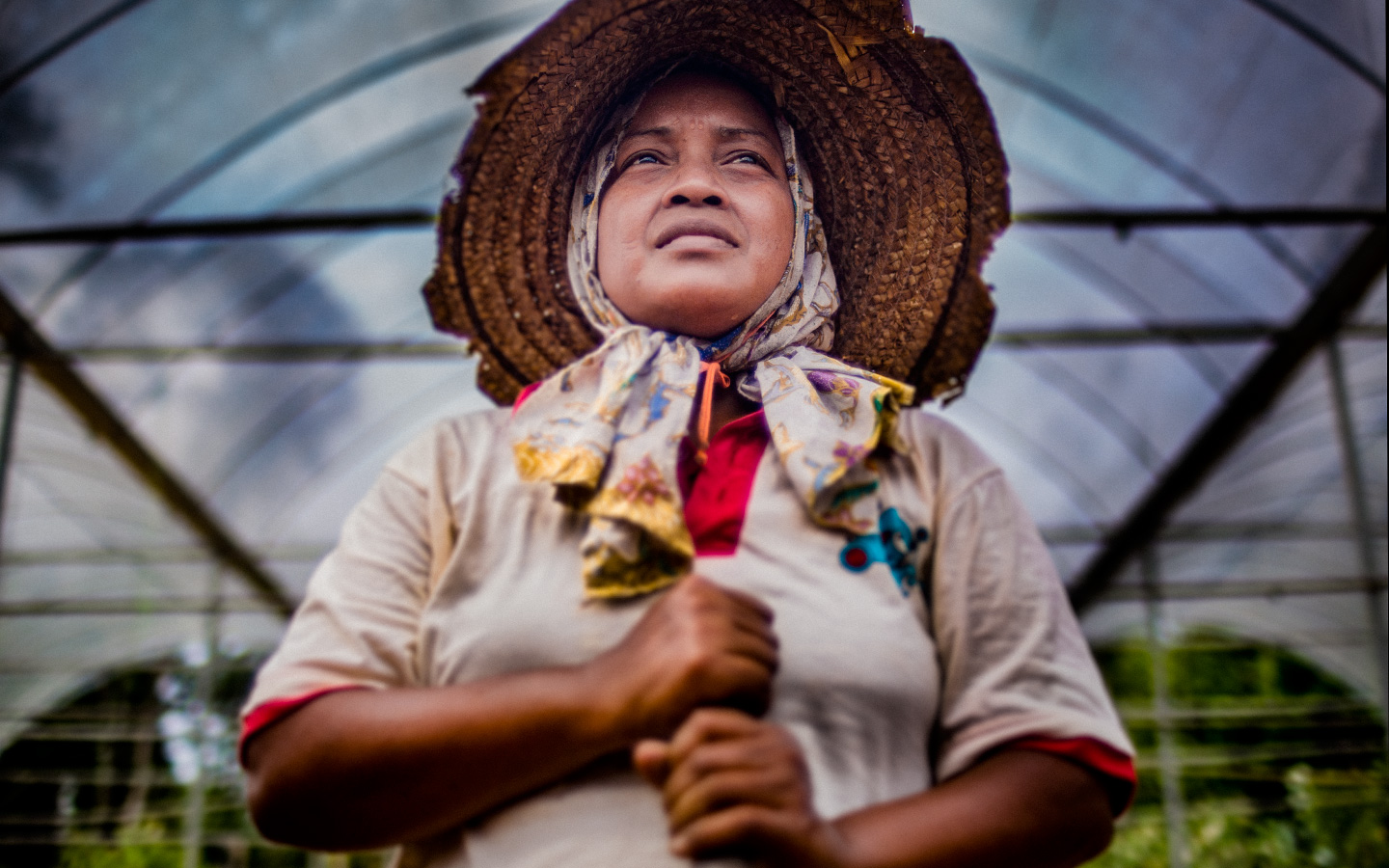Why rural women need land rights: A conversation with Steven Jonckheere
IFAD Asset Request Portlet
Asset Publisher
Why rural women need land rights: A conversation with Steven Jonckheere
Estimated reading time: 4 minutes
Women make up nearly half the world’s agricultural labour force, yet they own less than 15 per cent of agricultural land. This has huge consequences for their income stability, food security, their other rights within their communities – and even their ability to adapt to climate change.
This International Women’s Day, we sat down with Steven Jonckheere, IFAD’s Senior Technical Specialist on Gender and Social Inclusion, for a conversation on why women’s land rights matter – and what IFAD is doing about it.
Why are women’s land rights so important?
Women who own and control land have a pathway to build better livelihoods. We’re talking about something beyond the right simply to access land. It means being able to buy or sell it, choose how to cultivate and care for it, and get financing to grow businesses, all on the same basis as men.
When women are economically empowered, their status within communities and households improves. Securing women’s land rights is a big step towards genuine gender equality. And it’s critical in adapting to climate change.
Can you expand a bit on that – how exactly does climate change come into play?
With climate change taking hold, rural women risk bearing the brunt of natural disasters, displacement, unpredictable rainfall, decreased food production and rising hunger and poverty. And with limited rights to access and own land, many of these women don’t have the resources they need to rebuild from what’s already happened and prepare for the inevitable changes to come.
If rural women own their land, they’re obviously going to be more ready to invest in it for the future, conserve biodiversity and natural resources, and bring in climate-resilient agricultural practices.
Empowering women is essential, to build both their resilience and their families’. Strengthening women’s rights to land is a big part of this.
So, how can we actually strengthen women’s land rights?
At IFAD, we push for policy reforms that improve women’s access to land. We get women involved in managing resources so that their perspectives are taken into account.
At the same time, you won’t be surprised to learn that, while 164 countries recognize a woman’s right to own, use and make decisions about land on equal terms with men, the reality is a lot more complicated. Thanks to discriminatory customary laws, only 52 countries actually guarantee this right in practice.
Legal and policy reforms work – if they’re implemented. A big part of IFAD's work is making sure officials are informed and supportive, and men and women alike are aware of the laws and able to act on them. So, in Burundi, for example, we funded an initiative with special legal clinics for women on laws and customary norms around land, and the legal assistance available to them.
We also come up with ways to document women’s land rights. One of our projects in Bangladesh helps families get titles to land, but ensures it’s held jointly by wife and husband. And the woman’s name comes first on the title deed, so if she’s widowed or the couple splits up, the land stays in her name.
It takes lasting cultural change for societies to accept and support women’s land rights. This means raising awareness, communication and gender sensitization in households, in communities and amongst officials.
IFAD’s been working on rural women’s land rights for over 40 years. What have we learned about what works?
We know enforcement mechanisms must be built into legal reforms and changes in customary practices. We’ve also learned that relying on broader principles of non-discrimination isn’t enough: for transformative change, we need to proactively support women’s land ownership, as we do in Bangladesh.
Land rights are only part of a package of measures that empower women economically and socially. Alongside land tenure security, we need pro-poor policies, services and investments that reduce women’s vulnerability and enable them to make the best use of their access to land. We also need to ensure women have fair representation in governments and decision-making bodies, and a voice at home and in their communities.
In all of this, we have to take communities, including men and elders, along with us so that the changes we’re pushing for will be sustainable. That’s why education and good communication are crucial.
So what’s next for IFAD when it comes to women’s land rights?
We’re working with the Consortium of International Agricultural Research Centers (CGIAR) to try out new approaches, developing toolkits based on our experiences, and applying what we learn to our projects. We’ve developed online trainings with FAO on securing land tenure. We’re using household methodologies to help families discuss how each member shapes their shared future, especially in the context of climate change. We’ve found this really effective in driving gender transformation within households and communities.
At the end of the day, rural women must have full participation in their societies. This is more important than ever: climate change is happening, and it’s going to have the biggest impacts on rural-dwellers in developing countries. Making sure women can secure their rights to land is the first step for rural societies to not just adapt, but flourish.
Publication date: 07 March 2022